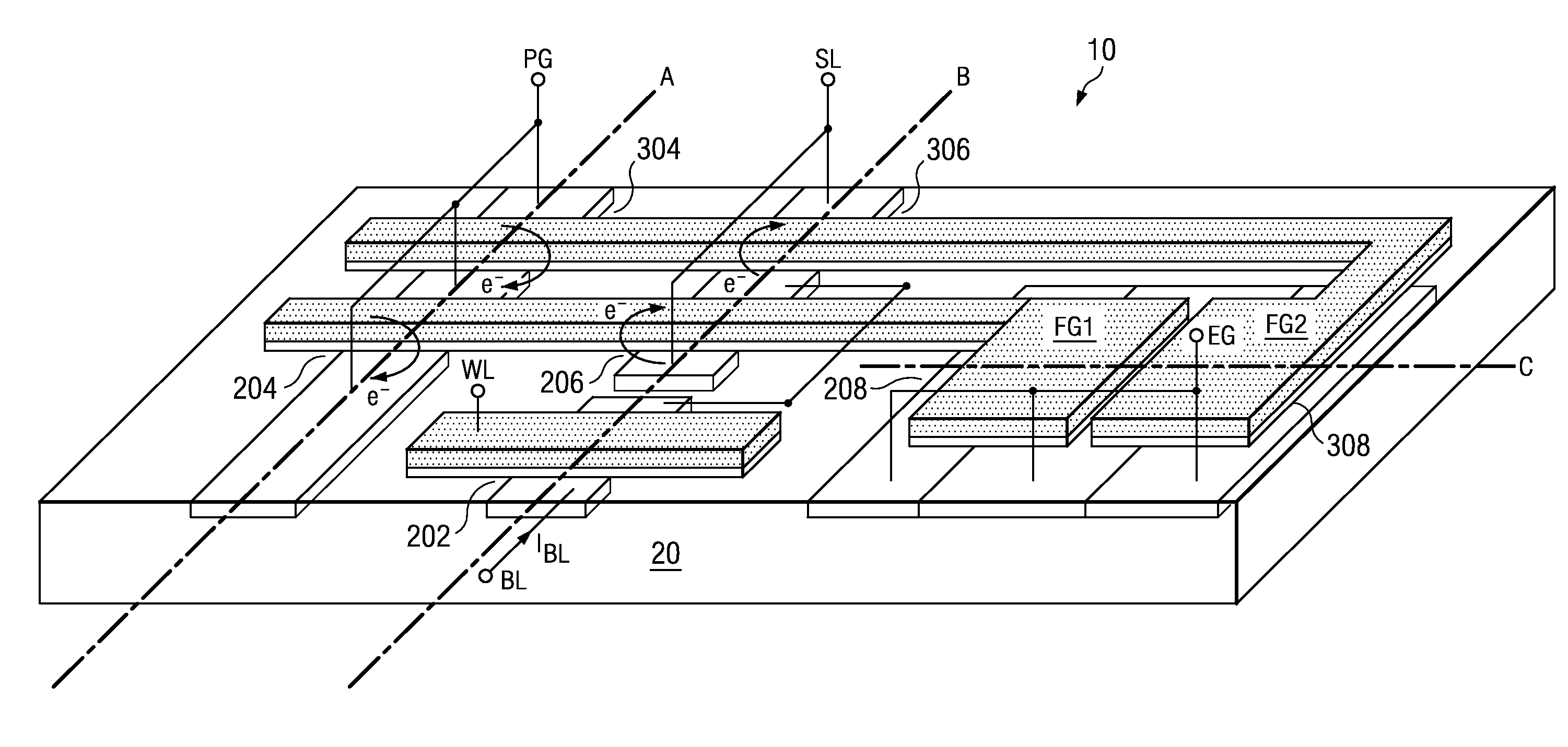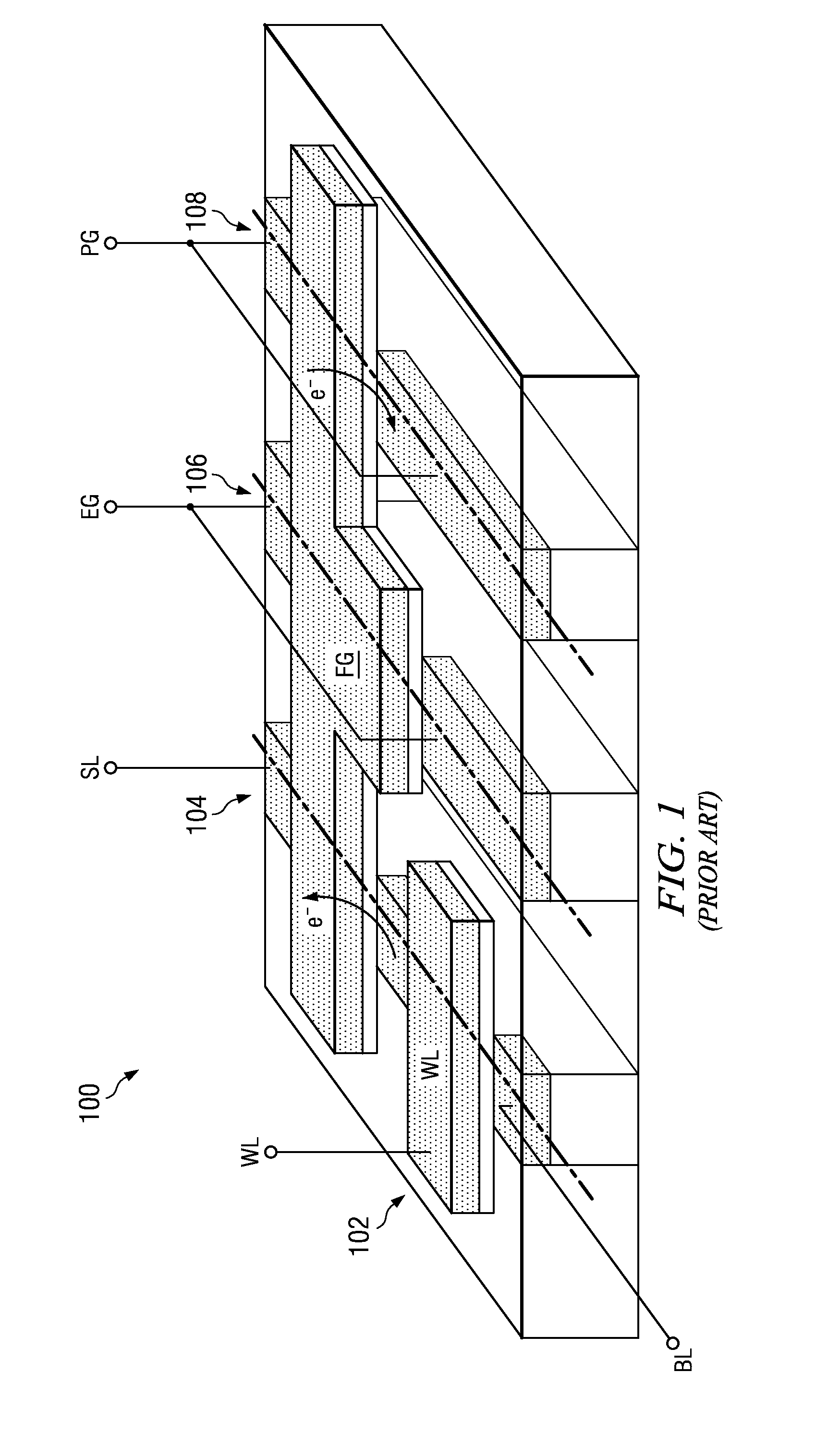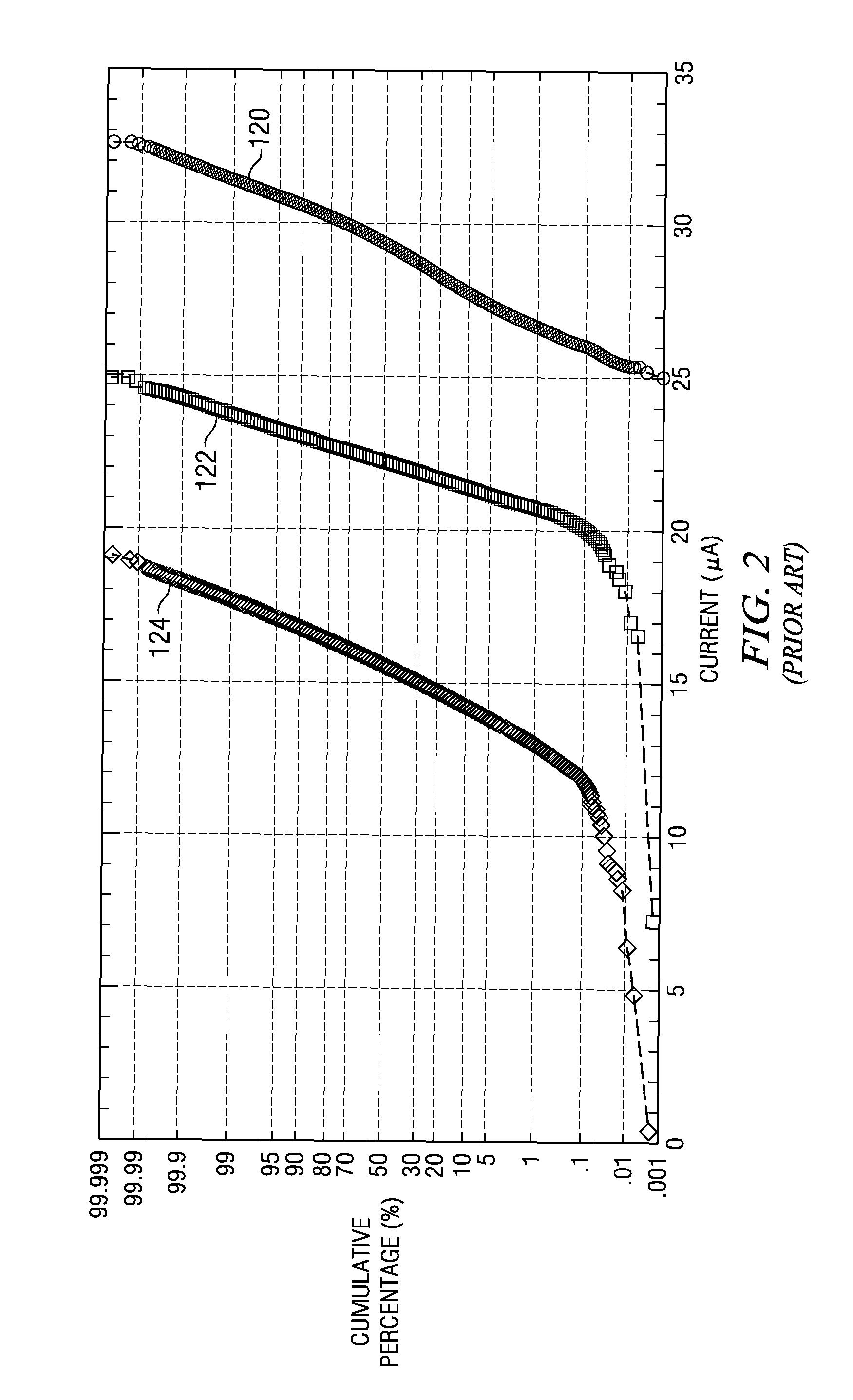Logic non-volatile memory cell with improved data retention ability
a non-volatile memory and data retention technology, applied in the field of memory cells, can solve the problems of specific process steps in the standard cmos-based logic process, create complications, and not only increase the wafer cost, but also fall short of the peak performance that the most advanced standard logic process can deliver. achieve the effect of improving data retention time and improving reliability of memory cells
- Summary
- Abstract
- Description
- Claims
- Application Information
AI Technical Summary
Benefits of technology
Problems solved by technology
Method used
Image
Examples
Embodiment Construction
The making and using of the presently preferred embodiments are discussed in detail below. It should be appreciated, however, that the present invention provides many applicable inventive concepts that can be embodied in a wide variety of specific contexts. The specific embodiments discussed are merely illustrative of specific ways to make and use the invention, and do not limit the scope of the invention.
A novel logic non-volatile memory (LNVM) cell and methods of forming the same are provided. The operations and variations of the preferred embodiments are discussed. Throughout the various views and illustrative embodiments of the present invention, like reference numbers are used to designate like elements.
FIG. 3 illustrates a perspective view of non-volatile memory cell 10, which includes substrate 20 and floating gates FG1 and FG2 formed over substrate 20. Memory cell 10 includes a first capacitor (also referred to as a program-tunneling capacitor) 204, a first transistor 206, a...
PUM
 Login to View More
Login to View More Abstract
Description
Claims
Application Information
 Login to View More
Login to View More - R&D
- Intellectual Property
- Life Sciences
- Materials
- Tech Scout
- Unparalleled Data Quality
- Higher Quality Content
- 60% Fewer Hallucinations
Browse by: Latest US Patents, China's latest patents, Technical Efficacy Thesaurus, Application Domain, Technology Topic, Popular Technical Reports.
© 2025 PatSnap. All rights reserved.Legal|Privacy policy|Modern Slavery Act Transparency Statement|Sitemap|About US| Contact US: help@patsnap.com



